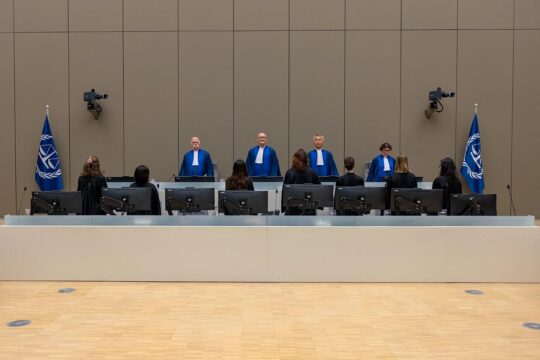The European Union on Thursday issued a point-by-point rebuttal of Hungary's campaign accusing US philanthropist George Soros and European Commission chief Jean-Claude Juncker of allegedly supporting illegal migration.
The Commission, the EU's executive arm, said the campaign "distorts the truth" with billboards, newspaper ads and Prime Minister Viktor Orban's letter to Hungarians alleging a Juncker-Soros plot.
"The claims made by the Hungarian government are at worst downright factually incorrect, or at best highly misleading," the commission said with its seven-point rebuttal.
"And none of it has anything to do with George Soros," added the statement and rebuttal disseminated online and via Twitter.
The commission's deputy spokeswoman Mina Andreeva told reporters in Brussels that the EU, for example, does not "want to introduce mandatory resettlement quotas."
Andreeva said the resettlement of refugees from outside the 28-nation bloc was and will remain voluntary.
She said this contrasts with an EU law adopted in 2015, at the peak of the migration crisis, requiring member countries to admit a share of asylum seekers from within the bloc.
Hungary refused to admit one single person under the two-year scheme designed to show solidarity with and ease pressure on fellow EU countries like Italy and Greece.
She said there are no provisions on mandatory relocation under the EU's current asylum rules and proposed asylum reforms call for some form of solidarity without stipulating relocation quotas.
Andreeva also rejected claims the commission wants to weaken member states' rights to defend their borders, adding it supported national border protection.
She said the commission "has zero plans" to introduce humanitarian visas, and does not work with any organisation "that facilitates irregular migration."
Andreeva also said EU aid, such as pre-paid debit cards, is designed to instead assist properly identified refugees who are already in Greece rather than promote migration.
She denied plans to launch immigration pilot projects with African countries, adding EU states alone decide whether to allow skilled legal migration from such countries.
She also denied plans to reduce funding for countries opposed to immigration.
Countries that have been more affected by migration receive more aid to help them manage it, "irrespective of their politics," the commission said.
Hungary's populist premier Orban launched the campaign on February 19, three months before the European Parliament elections that analysts say could see populist parties make gains based on anti-migrant sentiment.


